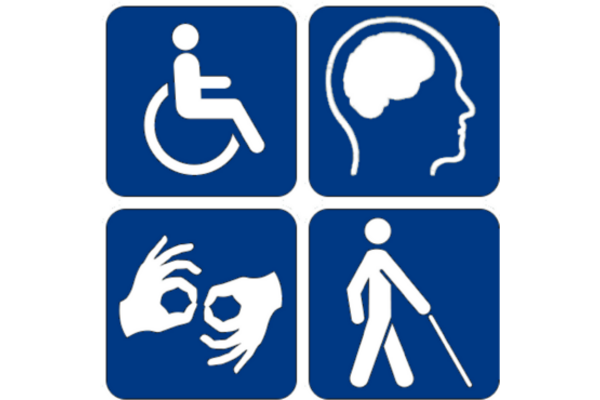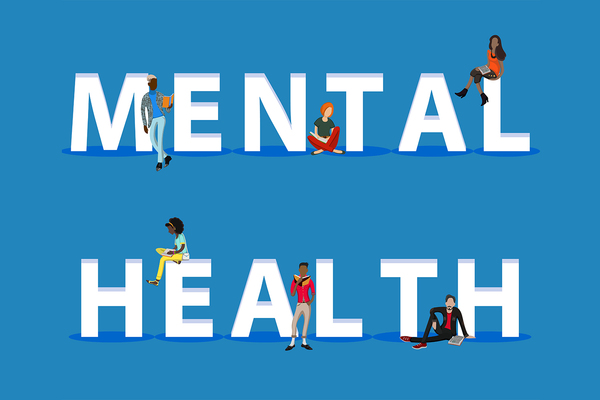Legal context
As defined by the Equality Act 2010, people with long term, or recurring mental health conditions are considered 'disabled'. Although this may not be a word that resonates with students with mental health conditions, it does mean that they are protected by legislation.
Legal Definition of Disability Under the Equality Act 2010 - a webpage outlining the Equality Act 2010 legislation with regard to disability.
There is very little legal precedent with regards to universities and the Equality Act 2010, however, the May 2022 judgement Abrahart v University of Bristol should be referred to. There are also findings by the Office of the Independent Adjudicator (OIA) which refer to students with mental health conditions.
Models of disability
Although there are multiple models of disability the predominant models are the Medical Model (where the disability lies with the person, looking at what is 'wrong' with them) and the Social Model (which states people are disabled by the barriers in society and focuses on how to remove these barriers). You can find out more with an easy Google search. At UMHAN, we advocate for the social model of disability.
Most universities also use the social model of disability, although this is at odds with requirements to provide medical evidence to access adjustments. It is also true that mental health conditions are often treated differently to physical health conditions, despite being covered by the same legislation.
Additional considerations
Students should not be expected to repeatedly disclose their condition to different staff members. For example, if a disability service holds sensitive medical evidence a student should not then have to produce additional evidence to access adjustments. The OIA says:
Where the provider knows that a student has a long-term but fluctuating condition, it should not normally ask the student to provide further medical evidence, each time they experience a flare-up, to support their requests for additional consideration. (OIA, Good Practice Framework)
However, this does not mean that information should not be shared at all about a student's condition. Please refer to our information sharing report for more information on this subject, but please be aware that student suicide is mentioned in the report.
The recent Abrahart v University of Bristol case has made it clear that students should not be expected to go through 'onerous' processes to access reasonable adjustments, and that reasonable adjustments should be made when a provider knows, or could reasonably be expected to have known, that a student is disabled.
The OIA also states that students with mental health conditions should be directed to apply for Disabled Students' Allowances (DSAs) at an early stage (see case CS052207).
Reasonable Adjustments
A key part of the Equality Act 2010 is the duty to provide 'reasonable adjustments' for disabled people, to remove barriers to participation and ensure equal access to education (and other aspects of daily life). The Act also allows you to treat disabled people 'more favourably' in certain circumstances:
The duty to provide reasonable adjustments also extends to adjustments to policies and processes and favours a flexible approach. It is important to ensure that policies, such as Fitness to Study and disciplinary do not inadvertently discriminate against students with mental health conditions. All policies and processes are covered, including those covering student support delivery.
Although adjustments should be individualised, some examples of reasonable adjustments for students with mental health conditions are:
Exams and assessments
- rest breaks in exams
- extra time in exams
- prompter to keep focused in exams
- exam officers to be aware that problems may arise during exam periods
- adjustments to assessment deadlines - this may include staggered deadlines and/or additional time
- alternative assessments
- extra support and help with planning before or during exam and assessment periods
- designated seating in exams
- a separate/smaller exam room.
Course adjustments
- adjustments to presentations or group work
- additional tutorial support
- adjustments to attendance criteria, for example flexibility in attendance and punctuality if treatments or therapies are tightly scheduled or during times when difficulties are worse than usual
- adjustments to placement requirements, e.g. location, department, timeframe
- provision of a quiet space
- preferential accommodation choice
- timetable planning and help with work programme - may include limiting the number of exams in a day or week
- academic staff to be clear about what they expect from you.
Support services
- additional or more flexible counselling sessions
- support from welfare and counselling staff
- assistance with applying for Disabled Students' Allowances
- Specialist Mental Health Mentoring
- Study Skills support
- named contact to go to for support when necessary
- contact from staff during any periods of time away from studies.
Equipment/materials
- using a phone for recording lectures
- computer equipment to enable you to study at home
- extensions on library loans.
Competence standards
The Equality Act 2010 does not require providers to make reasonable adjustments to a provision, criterion or practice that is defined as a competence standard. It is good practice for providers to identify what the competence standards are for each course and assessment, why they are competence standards, to record that information, and to share it with students. Information on competence standards, assessment and reasonable adjustments should be made available to students so they can make informed decisions when applying to courses. See: Equality Challenge Unit: Guidance on competence standards and reasonable adjustments.
The OIA has a clear checklist for competence standards:
Further reading and resources
Understanding adjustments: supporting staff and students who are experiencing mental health difficulties (2015). This document by the Equality Challenge Unit draws on best practice, providing examples and data for use in education settings.
Supporting disabled students: Mapping reasonable adjustments and transition support. A project report undertaken by AdvanceHE for TASO (2024) explores the implementation of transition support and reasonable adjustments for disabled students in higher education.
The key findings in relation to reasonable adjustments were that disabled students are coming up against a wide range of barriers in order to access support including inconsistent application of reasonable adjustments between academic departments and delays to receiving support. There was also some confusion about what support can and cannot be funded by the Disabled Students’ Allowance, and what reasonable adjustments providers should deliver as standard to meet legal requirements under The Equality Act. In terms of transition support – this was mostly achieving what it aims to do but often focused on one off events and resourcing is an issue.
Supporting disabled students (Borkin et al., 2024)
Disability Rights UK has resources including information on DSAs, accessing welfare benefits and reasonable adjustments.
Disability Rights UK - Into Higher Education
They also have a Disabled Students Helpline, providing advice to Disabled students, apprentices and trainees in England.
Available Training
Disability Rights UK Disability Confidence Training: Disability Rights UK run in-house training courses via Zoom. Face-to-face also available.
Disability Rights UK Bespoke and Consultancy Training: Disability Rights UK can create a bespoke disability knowledge and confidence programme to address issues specific to your business.









